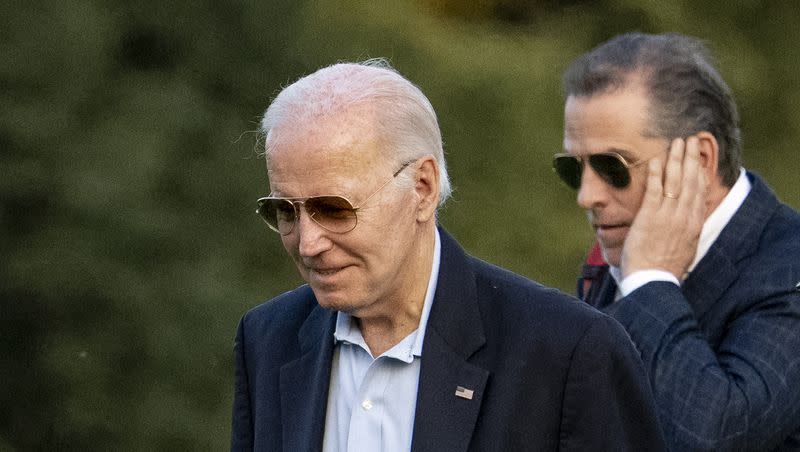National Archives confirm when Biden was vice president he used 3 pseudonyms

- Oops!Something went wrong.Please try again later.
- Oops!Something went wrong.Please try again later.
- Oops!Something went wrong.Please try again later.
The National Archives and Records Administration has confirmed the existence of three pseudonyms used by President Joe Biden during his time as vice president, according to the Southeastern Legal Foundation, an advocacy group.
Biden used the names Robin Ware, Robert L. Peters and JRB Ware in his emails.
The nonprofit advocacy group has been trying to uncover the pseudonyms Biden used as vice president for the past two years. They first requested the National Archives release those emails in 2021. At the time, the Archives said since the then-vice president’s records were collected on Jan. 20, 2017, they wouldn’t be made public until 2022, exactly five years later.
The Southeastern Legal Foundation then filed a Freedom of Information Act request in June 2022. At that point, the Archives said they had identified “approximately 5,138 email messages, 25 electronic files and 200 pages of potentially responsive records” as a part of the request but the documents were never made public.
“All too often, public officials abuse their power by using it for their personal or political benefit. When they do, many seek to hide it,” Kimberly Hermann, the general counsel at the legal nonprofit, said.
“The only way to preserve governmental integrity is for (National Archives and Record Administration) to release Biden’s nearly 5,400 emails to SLF and thus the public. The American public deserves to know what is in them.”
Related
Are the emails important?
The advocacy group has filed a federal lawsuit against the National Archives to get access to the emails, arguing they are central to the congressional investigation into the Biden family’s foreign business dealings.
House Republicans have also requested special access from the National Archives to emails between President Joe Biden and his son Hunter Biden related to business dealings with Burisma and Ukraine.
In an Aug. 17 letter to Colleen Shogan, archivist of the United States, on Thursday, House Committee on Oversight and Accountability Chairman James Comer asked for unredacted versions of the documents.
Comer, R-Ky., cited an email with the subject, “Friday Schedule Card,” which was withheld from the public because it contained personal information. The same email had an attachment that said then-Vice President Biden had a scheduled call with then-Ukrainian President Petro Poroshenko at 9 a.m. on May 27, 2016.
“It is concerning to the Committee, however, that this document was sent to ‘Robert L. Peters’ — a pseudonym the Committee has identified as then Vice President Biden,” Comer said in the letter. He also questioned why only Hunter Biden was copied on the email.
Related
What has Rep. Comer requested from the National Archives?
Comer asked for all communications that included the three pseudonyms confirmed by the National Archives.
He also requested access to any emails or documents where Hunter Biden, or his business partners Eric Schwerin and Devon Archer, were included, as well as all drafts between Nov. 1, 2015, to Dec. 9, 2015, when Biden addressed the Ukrainian parliament.
“Joe Biden has stated there was ‘an absolute wall’ between his family’s foreign business schemes and his duties as vice president, but evidence reveals that access was wide open for his family’s influence peddling,” Comer said in a press release.
This move comes after District Judge Maryellen Noreika dismissed the charges brought against Hunter Biden in Delaware as a part of a plea deal, upon the request of the newly-appointed Special Counsel David Weiss.
Under the plea deal, Hunter Biden was going to plead guilty to two misdemeanor tax charges and enter a pretrial diversion agreement to avoid prosecution on a felony gun charge.
Now, Weiss can file the same, or additional, charges in another district.
Related

